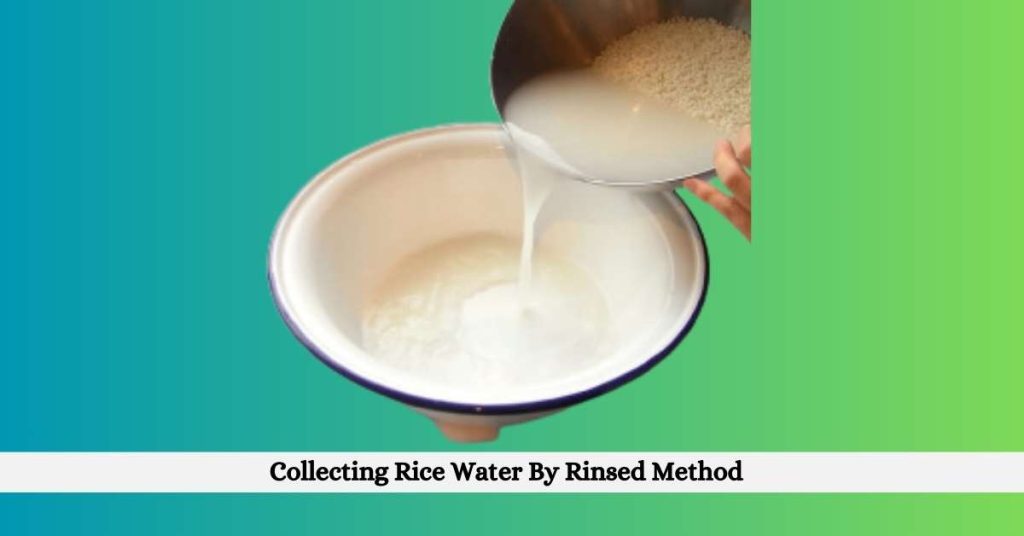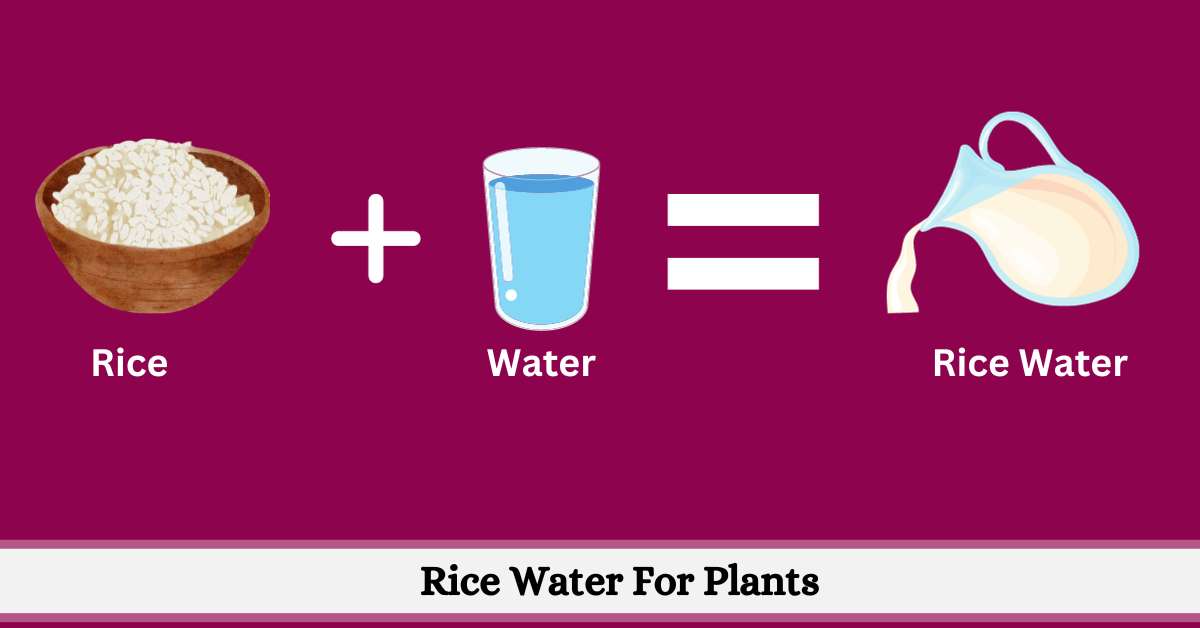Introduction
Hey there, fellow plant enthusiasts! Today, we’re delving into a topic that may seem a little out of the ordinary, but trust me, it’s fascinating – rice water for plants. You may have already heard about the wonders of rice water in the beauty industry, but did you know that it can also work wonders for our leafy friends?
Gardeners continually devise innovative methods to enhance plant growth, exploring homemade solutions from using eggshells to coffee grounds not leaving any waste to go in vain.
So is the case with rice water. Recent studies suggest that rice water could stand out as an exceptionally efficacious natural fertilizer for both outdoor and indoor plants. Conveniently crafted at home, this potential game-changer deserves a closer look.
In this article, we’ll explore the incredible effects of rice water as a natural fertilizer for plants. We’ll also dive into different methods of making rice water, plants that thrive on it, and so much more. So, grab your gardening gloves, and let’s embark on this green journey together!
Science Behind Rice Water as a Fertilizer
Before we delve into the details, you might wonder if there’s any scientific evidence to support the claims about rice water’s effectiveness in plant growth. Well, you’ll be glad to know that extensive research has been conducted on precisely this topic. Experts have published studies highlighting the remarkable benefits of rice water as a fertilizer. For instance, a study published in the prestigious Journal of Plant Nutrition revealed that rice water can significantly enhance the growth and yield of specific crops like wheat and maize.

Another research published in the Journal of Crop Science and Biotechnology indicated that rice water contains essential nutrients that can improve overall plant health. These scientific findings provide valuable insights into the potential advantages of utilizing rice water as a natural fertilizer.
Rice washing can remove a significant amount of water-soluble nutrients from the rice grains, and the water after rice washing is often simply discarded into the environment. This discarded water contains several essential plant nutrients, such as (in mg L−1) 40 to 150 of N, 2.57 to 39.72 NH4+, 43 to 1630 P, 51 to 200 K, 8 to 2944 Ca, 36 to 1425 Mg, and 27 to 212 S. (Nabayi, Sung, Zuan, Paing, & Akhir, 2021)
Additionally, the presence of plant growth-promoting bacteria like Bacillus and Lactobacillus spp quite enhanced its enrichment. Their presence in rice water is particularly noteworthy because these bacteria can inhibit plant pathogens, produce phytohormones and siderophores, solubilize potassium and phosphate, and fix nitrogen.
So, Rice water for plants is not a mere assertion, it’s a substantiated scientific fact.
Methods of Creating Rice Water for Plants
Now that we know the scientific backing behind rice water, let’s explore how we can make it ourselves. There are three popular methods for creating rice water for plants: the rinsed type, the boiled type, and the fermented type. Let’s take a closer look at each method.
1. Rinsed Type:

– Begin by taking a cup of uncooked rice and rinsing it thoroughly to remove any impurities.
– Transfer the rinsed rice to a larger container and add four cups of water.
– Allow the rice to soak in the water for approximately 30 minutes.
– Once the soaking period is over, strain the rice and collect the rice water in a separate container.
– Congratulations! You now have fresh, rinsed rice water for plants ready to work its magic on your plants.
2. Boiled Type:
– Start by taking a cup of uncooked rice and giving it a quick rinse to remove any debris.
– Place the rinsed rice in a pot and add four cups of water.
– Bring the water to a boil and let it cook for about 15 minutes.
– Once the rice is cooked, strain it and allow the rice water to cool down.
– Voila! Your boiled rice water is now prepared to nourish your plants.
3. Fermented Type:
– Just like the rinsed method, begin by rinsing a cup of uncooked rice to ensure it’s clean.
– Next, place the rinsed rice in a jar or an airtight container and add four cups of water.
– Let the mixture sit at room temperature for approximately two days.
– During this fermentation period, remember to stir the mixture a few times daily.
– Once the water turns slightly cloudy and develops a sour smell, strain out the rice solids.
– Fantastic! You’ve successfully prepared fermented rice water for your plants.
Fermented rice water can indeed enhance its effectiveness as a fertilizer for plants. The fermentation process can promote the growth of beneficial microorganisms, such as lactic acid bacteria, yeast, and other microbes. These microorganisms contribute to the breakdown of organic matter in the rice water and increase the availability of nutrients for plants.
Understanding the Rice Water NPK Ratio
Now, let’s delve into the vital role played by nitrogen (N), phosphorus (P), and potassium (K) in plant growth. Nitrogen aids in lush green foliage, phosphorus supports root development and flowering, while potassium contributes to overall plant health and disease resistance. To better understand the NPK nutrient content of rice water, let’s take a closer look at the following table:
| Nutrient | Rinsed Rice water | Boiled Rice water | Fermented Rice water |
| Nitrogen | 0.9% | 0.5% | 2.0% |
| Phosphorous | 0.1% | 0.4% | 0.5% |
| Potassium | 0.5% | 0.6% | 1.5% |
As you can see, the NPK ratio varies depending on the preparation method. Fermented rice water boasts the highest concentration of nutrients, making it a potent natural fertilizer option.
Furthermore, beyond the primary NPK components, rice water encompasses minute quantities of additional micronutrients and minerals—namely magnesium, calcium, and iron—that prove advantageous for plant health.
Rice Water for Succulents
Succulents, known for their ability to store water in their leaves, can greatly benefit from using rice water. These plants thrive in well-draining soil but are prone to root rot if overwatered. Rice water provides a gentle and balanced supply of nutrients, making it the perfect choice for succulent care.
However, rice water for plants should be misted in this case. Mist the succulents with rice water during the normal watering to give them the best benefits and avoid overwatering.
Simply dilute the rice water with tap water (1 part rice water and three parts tap water) and fill it in a clean spray bottle before spraying it on the leaves.
So, providing them with rice water in the early hours of the day or the evening would help them give beautiful blooms.
Plants That Like Rice Water
Apart from succulents, many other plant varieties also relish the nourishment provided by rice water. Some of these plants include:
- Spider plants (Chlorophytum comosum)
- Ferns (Nephrolepis spp.)
- Orchids (Orchidaceae)
- African violets (Saintpaulia spp.)
- Peperomia (Peperomia spp.)
Additionally, some indoor plants exhibit good growth when fed with rice water, including aloe vera, lucky bamboo, Chinese money plant, etc
If you’re looking for an easy way to enhance your pothos plant care, jade plant care, or snake plant care regimen—or if you want to grow even healthier garden plants—rice water can help.
These plants have shown remarkable improvement in growth, vibrant foliage, and increased resistance to pests when treated with rice water. So why not give it a try? You might just witness some magical transformations in your garden.
How Often Should You Use Rice Water on Your Plants?
The frequency of application of rice water for plants depends on various factors such as the plant species, soil conditions, and climate. As a thumb rule, it is recommended to use rice water once every two weeks during the growing season. However, closely monitor your plants and adjust the frequency accordingly. Remember, maintaining a balance is crucial, as over-fertilization can have adverse effects on plant health.
The application of rice water does not enchantingly fortify the soil, nor does it yield conspicuous strides in plant growth within the brief span. Nevertheless, it constitutes a healthy regimen, fostering soil vitality and overall health.
Utilizing fermented rice water consistently is viable due to its antimicrobial properties. The fermented blend may possess increased potency, making it advisable to dilute it with additional water. This dilution ensures that the mixture can be applied across the entire garden, promoting a more widespread benefit.
Benefits Rice Water Brings to Plants
Utilizing rice water as a fertilizer offers a multitude of benefits to your beloved plants. Let’s explore some of them:
- Enhanced Growth: Rice water provides a natural source of nutrients that can boost plant growth and development, resulting in healthier, lusher foliage.
- Improved Soil Quality: The organic compounds present in rice water can enhance soil fertility by promoting nutrient absorption and encouraging microbial activity.
- Disease Resistance: The beneficial bacteria found in fermented rice water can strengthen a plant’s immune system, making it more resilient against diseases and pests.
- Cost-Effective Solution: Instead of investing in expensive chemical fertilizers, rice water serves as a budget-friendly, natural alternative that saves you money.
- Sustainable Gardening: By repurposing rice water that would typically go to waste, you contribute to sustainable gardening practices and reduce water wastage.
- Root Promotion: Promoting root growth in orchids can be challenging, but treating them with rice water fertilizer resulted in a notable increase in both the length and quantity of shoots.
- Microbial Load: Rice water contains starch, which plays an important role in feeding the bacterial and fungal environment of the garden.
So, This practice of using Rice water for plants not only diminishes wastage but also mitigates reliance on synthetic fertilizers, whose environmental repercussions include fostering water pollution and soil degradation.
Frequently Asked Questions
1. Is rice water for plants beneficial for money plants?
Absolutely! Money plants, also known as Pothos (Epipremnum aureum), can greatly benefit from the nutrients present in rice water. Apply it once every two weeks, and watch your money plant’s stunning growth with lush green foliage.
2. Are there any risks in using rice water on plants?
When used in moderation, rice water is generally safe for plants. However, excessive application or overwatering can lead to nutrient imbalances or waterlogged soil. It may cause:-
1. Leaching of nitrogen ions (in sandy soil)
2. Hardening of the soil crust
3. Blooming of harmful bacteria and molds
4. Attracting starch-feasting pests like ants and gnats
5. Root rot due to excessive starch
6. Surge of unwanted bacteria due to starch-feeding
3. Is rice water for plants advisable to use rice water for plants daily?
Using rice water daily may lead to over-fertilization and potential nutrient imbalances. It’s best to stick to a moderate usage schedule, such as applying it once every two weeks, for optimal plant health. As the potential starch build-up is a threat to the plant look after the frequency of use with care.
4. Can I use rice water on tomato plants?
Yes, tomato plants can benefit from the nutrients present in rice water. However, be sure to dilute the rice water before applying it to tomato plants to avoid any potential nitrogen burn or salt buildup in the soil. Increased stem diameter, height, and yield are evident in tomatoes with the use of rice water.
Final Thoughts
So, Rice water, in the realm of plant nourishment, extends beyond the primary nutrients (NPK) to unveil a subtle dance of micronutrients—magnesium, calcium, and iron. This botanical symphony underscores the multifaceted vitality woven into rice water’s essence.
And there you have it – a comprehensive guide to utilizing rice water for the benefit of your plants. From various preparation methods to the advantages and plant species that thrive on it, rice water can revolutionize your gardening routine.
Give rice water for plants a try, and embrace the transformative potential of rice water for plants in your gardening repertoire. In the language of leaves and roots, rice water whispers a tale of symbiotic elegance—a narrative where the garden becomes a stage, and each plant, is a dancer in the graceful minuet of botanical well-being. Happy gardening!
References
1. Nabayi, A.; Sung, C.T.B.; Zuan, A.T.K.; Paing, T.N.; Akhir, N.I.M. Chemical and Microbial Characterization of Washed Rice Water Waste to Assess Its Potential as Plant Fertilizer and for Increasing Soil Health. Agronomy 2021, 11, 2391. https://doi.org/10.3390/agronomy11122391
2. https://flourishingplants.com/using-rice-water-on-plants/
3. https://www.gardeningchannel.com/rice-water-on-plants-good/
4. https://utopia.org/guide/rice-water-for-plants-easy-step-by-step-guide/


